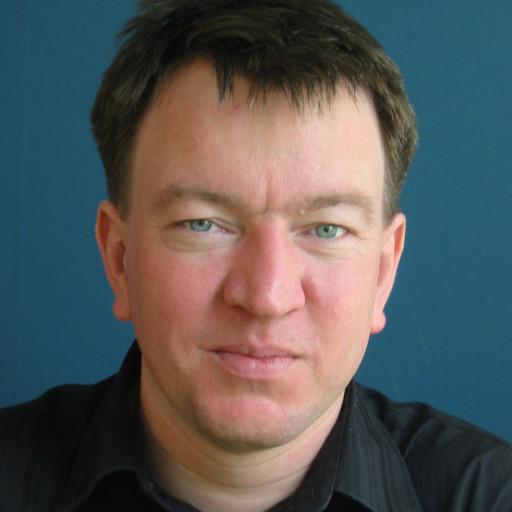Category: Topics
Going Open! Thursday at the Transnational Institute
First post here after a long silence… maybe too busy with twitter, Nabuur, WebEnq, Ecampaigning Forum, NetSquared. And now preparing my short intro into "open everything" to set the stage for Thursday’s meetup of the E-collaboration group.
Within a smaller group, we had some discussions about "open", and about how choosing technology for your campaign or organisation is also a political, cultural, and ethical choice. Features and price often dominate, and lots of stuff on the internet is for free. But there’s no such thing as a free lunch: there are many lessons we learned in development aid that equally apply when your organisation gets such "free" web development aid. Lets not spend decades to learn them again.
So while on the one hand, people are trail-blazing the concept of "open everything", there are, on the other hand, many people working in international cooperation who are just starting to look at why all this "open" matters, and how it can help them achieve their mission.
How “web 2.0” can you become in six months?
 Adaptive Path’s DNA of web 2.0
Adaptive Path’s DNA of web 2.0
A while ago I was asked to help answer an interesting question. Imagine: you want your website (and organisatuon) to become "truly web 2.0", and a donor is considering a sizeable grant to help you do that, under the condition that you define yourself how you will measure your "web 2.0"-ness, set your own targets for the next half year, and have reached those targets by then. What would you measure and what targets would you set?
- Indicators: Web 1.0 metrics like number of visitors or registered users are not really a measure for "web 2.0-ness". Amount of user-generated content maybe more. Per registered user? Number of mashups? Position in Technorati? Having an API, connecting to the APIs of other sites? Number of feeds into your site?
- Targets: A 6-month timeframe to do the technical work and show measurable results would lead me to focus more on the infrastructure and organisational side of things. What’s a realistic target… needs to be compelling enough to get the grant, but also a pretty certain win…
Back from FOSDEM in Brussels
 Back from FOSDEM in Brussels. In their own words on the information booklet: "4000+ geeks, 200+ lectures, 2 days, 0 EURO". I had two motivations to go there: Brussels is close to my home in Amsterdam and always nice to visit; and I could sit and listen a whole day to Drupal presentations, and get the opportunity to check out some other projects too.
Back from FOSDEM in Brussels. In their own words on the information booklet: "4000+ geeks, 200+ lectures, 2 days, 0 EURO". I had two motivations to go there: Brussels is close to my home in Amsterdam and always nice to visit; and I could sit and listen a whole day to Drupal presentations, and get the opportunity to check out some other projects too.
As the FOSDEM booklet says, it’s a gathering focused on lectures, so I got my portion of sitting still and getting powerpoint-poisened in over-crowded and under-ventilated rooms. A lot of people breaking the "show me, don’t tell me" rule. But Brussels was nice, and some of the presentations on Drupal and Thunderbird were useful for me:
Designing sociality for Nabuur
Nabuur has been pioneering online volunteering since 2001, and is currently redesigning their organisation: how to put "web 2.0" into the DNA of everything that’s happening? And how to engineer that, rather than try and hope it works?

So I spent the day with Nabuur team members, who invited René Jansen to facilitate drilling down to the core of their activities. René is one of the authors of "The Realm of Sociality: Notes on the design of social software", a paper which won the Best Paper Award 2007 at the “International Conference on Information Systems” in Montreal, last December, and (to me, at least) introduces the concept of "sociality" as the centre of the design process.
Private initiatives for international development should organise
Lau Schulpen of CIDIN at the Radboud University in Nijmegen researched the effectiveness of Dutch "private initiatives" working in international development. Last week, his first findings were published, and created a little storm in the Dutch development sector (see e.g. the Dutch Trouw newspaper, copied by most other papers). I’m just returning from a presentation of his results, followed by a debate with Henny Helmich of NCDO, and Robert Wiggers of Wilde Ganzen: two organisations who fund a lot actvities of private initiatives. My take-away: private initiatives need a branch organisation, a kind of union.
FLOSSmanuals is go
Last Friday, Adam Hyde pressed the big green "go" button for flossmanuals.net: a place to read, write, and remix free manuals for free software. The Netherlands Media Art Institute provided the place and time as part of the opening of the Video Vortex exhibition (they call it their response to Web 2.0). Part of the exhibition is a workshop space for projects, available for a week, and flossmanuals.net is the first one there. Adam also announced a good Board of Advisors that’s just established, and a grant from the Digital Pioneers fund.
Firefox essential extensions
After using Firefox for a while, it’s hard to imagine still how "normal people" surf the web. By now, I tweaked my Firefox behaviour with several extensions.
Webdeveloper toolbar
Essential for developing web pages! The toolbar offers too many options to list all, but to name a few that I would not live without anymore:
- CSS tools: edit the style sheet of a page on the spot, great for testing and debugging. Mark links as visited or unvisited to test styles here too.
